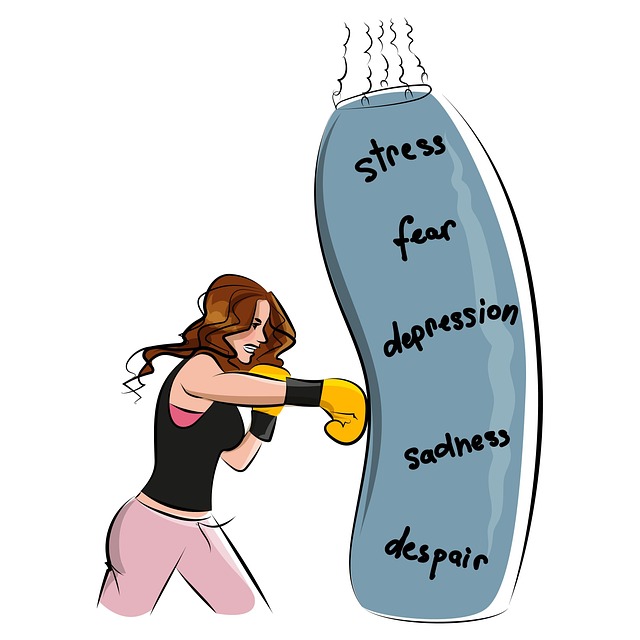Children's mental health, especially regarding Obsessive Compulsive Disorder (OCD), necessitates specialized care. Early identification and tailored therapy like cognitive-behavioral therapy (CBT) are key to effective management. Open communication between parents, caregivers, and mental health professionals is vital. Mental health advocacy expands access to affordable therapy, addresses stigma through awareness campaigns, promotes evidence-based interventions, and fosters supportive communities. Tailored therapy, parental involvement, education, and awareness campaigns improve outcomes and reduce stigma for children with OCD.
Mental health advocacy plays a pivotal role in ensuring children receive much-needed therapy, especially for conditions like Obsessive Compulsive Disorder (OCD). This article explores the critical aspects of mental health advocacy initiatives, focusing on OCD in children. We delve into understanding this complex disorder, highlighting the significance of early intervention and access to therapy. By examining effective strategies for advocacy, we aim to empower parents, educators, and caregivers to navigate systems and secure the best support for young minds struggling with OCD.
- Understanding Children's Mental Health and OCD
- The Role of Advocacy in Promoting Therapy Access
- Strategies for Effective Mental Health Advocacy Initiatives
Understanding Children's Mental Health and OCD

Children’s mental health is a critical aspect that often requires specialized attention, especially when dealing with conditions like Obsessive Compulsive Disorder (OCD). OCD manifests as recurring, unwanted thoughts and repetitive behaviors that significantly impact a child’s daily life and overall well-being. Early identification and intervention are crucial in managing OCD effectively. Therapy for Children with OCD involves evidence-based approaches tailored to their age and unique needs, focusing on modifying unhelpful thought patterns and habits through techniques such as cognitive-behavioral therapy (CBT).
Encouraging open communication strategies between parents, caregivers, and mental health professionals plays a vital role in supporting children with OCD. Community outreach programs can also foster understanding and reduce stigma associated with mental health issues in children. By implementing these initiatives, we promote an environment where positive thinking and resilience are nurtured, enabling children to thrive and lead fulfilling lives despite the challenges posed by OCD.
The Role of Advocacy in Promoting Therapy Access

Advocacy plays a pivotal role in promoting therapy access and ensuring that individuals, especially children suffering from conditions like Obsessive Compulsive Disorder (OCD), receive the support they need. Mental health advocates work tirelessly to raise awareness about the importance of therapy, challenging societal stigmas and misconceptions surrounding mental health issues. They advocate for policies that make therapy more accessible and affordable, pushing for better integration of mental health services within educational institutions and primary care settings.
Effective advocacy initiatives include promoting communication strategies that encourage open dialogues about mental health struggles. By educating communities on risk assessment methods for mental health professionals, advocates ensure the safety and well-being of both clients and therapists. Moreover, they emphasize the need for evidence-based interventions and stress reduction methods tailored to children with OCD, ultimately improving therapy outcomes and enhancing the overall well-being of young patients.
Strategies for Effective Mental Health Advocacy Initiatives

Mental health advocacy initiatives require a multi-faceted approach to be truly effective. One key strategy is to target specific populations like children and youth struggling with conditions such as Obsessive Compulsive Disorder (OCD). Providing therapy for children tailored to their needs, along with involvement from parents or guardians, can significantly improve outcomes. Education and awareness campaigns play a crucial role in breaking down stigma associated with mental health issues, encouraging open conversations, and promoting the importance of early intervention.
Stress Management Workshops Organization and Self-Care Practices are valuable tools for empowering individuals to take control of their well-being. These initiatives can be tailored to diverse audiences, including students, working professionals, and seniors, teaching practical strategies for coping with stress, anxiety, and other mental health challenges. Additionally, incorporating Mental Health Awareness activities in schools, workplaces, and community centers fosters a culture of support and understanding, ensuring that those facing struggles have access to the resources and care they need.
Mental health advocacy plays a pivotal role in ensuring children with conditions like Obsessive Compulsive Disorder (OCD) receive the therapy they need. By increasing awareness, challenging stigma, and advocating for accessible healthcare, we can create a supportive environment where kids can thrive. Effective initiatives focus on education, early intervention, and empowering families to navigate the complexities of mental health care. Through these efforts, we move towards a future where all children have the opportunity to lead happy and healthy lives.














